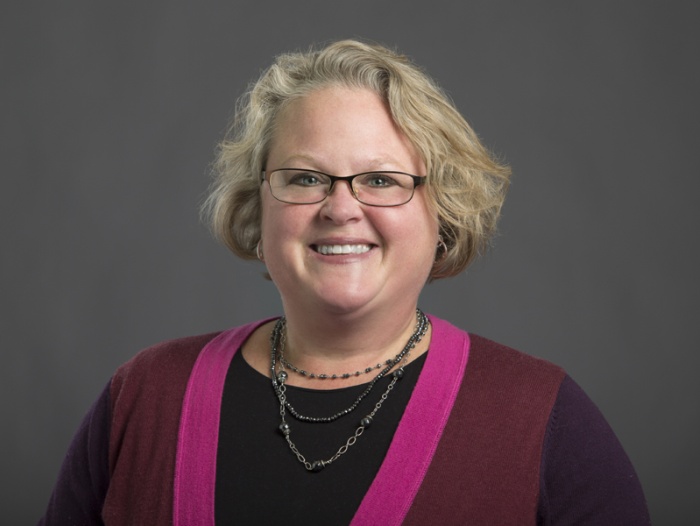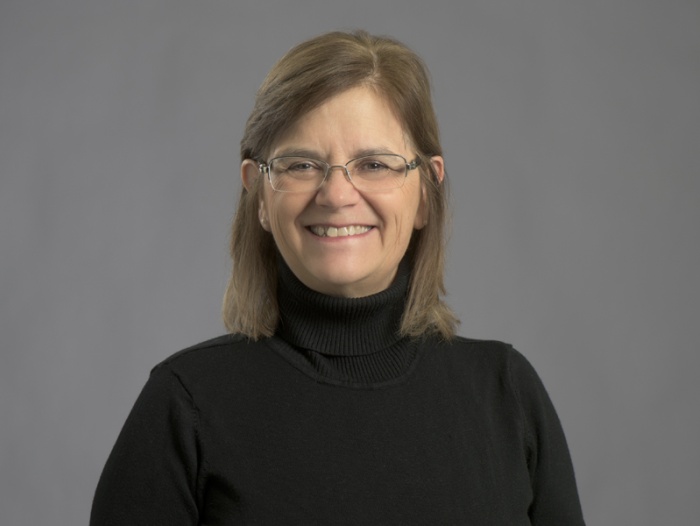Introduction
Our Master of Science (MS) in Medical Laboratory Science program prepares you to perform tests that aid in diagnosing and treating diseases.
Your ability to use the latest tests to analyze patients' bodily fluids will make you a vital part of the health care team.
We are one of the first Medical Laboratory Science programs in the country to offer a master’s degree. The program has a long history and is highly regarded both locally and nationally.
All of our students who graduated from 2019-23 found employment. In addition, over 85% of them passed the ASCP Board of Certification within a year of graduating.
This is an entry-level program that is not designed for people who already have a degree in medical laboratory science or technology.
Our approach

Medical Laboratory Science students work with lab samples with the help of a faculty member.
You learn from faculty who also practice as professionals at one of the nation’s top academic medical centers, Rush University Medical Center.
This means you will receive rich, hands-on experiences in the laboratory. You have access to a variety of resources for learning, including digital microscopy and actual patient specimens.
The curriculum is built around a core of basic and advanced theoretical knowledge combined with clinical practice in the following areas:
- Clinical chemistry
- Clinical microbiology
- Hematology
- Immunology
- Immunohematology
- Molecular diagnostics
You have small class sizes for more one-on-one instruction but still enjoy the benefits of learning at a large academic medical center. This includes opportunities to work with students and professionals in a variety of fields.
In addition, you can take advantage of our community service programs to receive hands-on training. And we provide opportunities to work with funded, experienced researchers who are working on translational research projects.
Plus, all of your learning takes place in the vibrant city of Chicago. You have access to a wealth of diverse neighborhoods and cultural opportunities.
Masters in Medical Laboratory Science program length and location
Our 21-month program, 75-credit program takes place in-person on campus.
Your first year will be dedicated to learning basic theories and skills. The next year, you will complete a clinical practicum at Rush University Medical Center or one of the following affiliated hospitals:
- Ann & Robert H. Lurie Children’s Hospital of Chicago
- Northwestern Memorial Hospital
- The University of Chicago Medicine
- University of Illinois Hospital & Health Sciences System
You'll also have full microbiology and blood bank rotations.
Masters in Medical Laboratory Science program tuition
At Rush University, we know your education is a big investment. We want to make sure you have all the information to be able to make the best financial decisions for you and your family.
Tuition for the Master of Science (MS) in Medical Laboratory Science program is $853 per credit.
The College of Health Sciences at Rush University has dedicated need- and merit-based scholarships.
In addition, program-specific awards are available on a periodic basis.
Inside the MLS community at Rush

“The opportunity to use AI has enhanced my studies by creating an easier route to word things more professionally and to give me ideas I haven’t thought of before.”
– Alex, second-year student
“AI can help you advance as a leader, but you have to be able to analyze it and critically think about it as a whole, which are skills you learn here at Rush.”
– Nadine Lerret, PhD, MLS(ASCP)CM, MLS program director
“As an alum and current faculty in the Medical Laboratory Science program, it offers opportunities in leadership, quality management, professional development and research to further your professional career."
– LaDonna Moreland, MS, MLS(ASCP)CM
, instructor
Medical laboratory science career opportunities
Our graduates are employed in a variety of settings, including the following:
- Forensic and crime laboratories
- Government regulatory agencies
- Hospital and independent reference laboratories
- Medical and biotechnology research facilities
- Outpatient clinics
- Universities and colleges
- Veterinary clinics and zoos
This program is also a great option if you want to complete a post-baccalaureate program before medical school. You have opportunities to learn about the procedures and processes that take place in medical laboratories.
There are several career paths for medical laboratory science graduates:
- Clinical analysis: Includes microbiology and chemistry
- Public health: Includes forensics and environmental health
- Industry: Includes pharmaceuticals and quality assurance
- Higher education: Includes educator and laboratory director
- Research: Includes cancer research and bioengineering
Employment of medical laboratory workers is expected to grow 7% from 2021-31, according to the U.S. Bureau of Labor Statistics.
According to PayScale, the average annual salary of a medical laboratory scientist is roughly $60,000 a year. This can vary depending on experience and location.

A native of Eagle Pass, Texas, young Jesus Gonzalez watched as his migrant farmer father’s backyard crops withered away and died.
He wanted to know why.
And with that simple question, Gonzalez began his journey as a scientist.
Nadine Lerret, PhD, MLS(ASCP)CM
(312) 942-2780
nadine_lerret@rush.edu
Learn about upcoming sessions and events in your field of interest.
Sign up to receive more information about this program.





